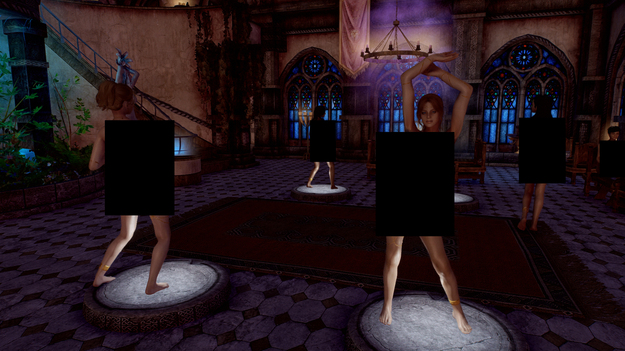
But immediately upon the production of this sign, a lightning bolt flashes from a clear sky and a thunderclap sounds, “as if by some arrangement,” says Herodotus (ὥσπερ ἐκ συνθέτου τευ γενόμενα, 3.86.2). There is no question, of course, of the gods’ producing the neighing of Dareios’ horse, the sign agreed upon by the seven Persian conspirators: that is the work of the manipulations of Dareios’ groom, Oibares, as Herodotus makes clear. Lastly, let us consider the case of Dareios’ clandestine manufacture of a sign which will make him king, where the question of divine involvement again surfaces. This passage shows in which way the gods decide, and gives us a foretaste of the outcome of events, while the decision taken in the world of men is presented later, at 8.78.

On a narrative level, the account of the portent presents the two possibilities between which the allies will have to decide, namely, retreat to, and defense of, the Peloponnese, or offering battle at Salamis. Herodotus makes no comment on this, but his emphasis on Dikaios’ obtaining of witnesses (ταῦτα μὲν Δίκαιος ὁ Θεοκύδεος ἔλεγε, Δημαρήτου τε καὶ ἄλλων μαρτύρων καταπτόμενος, “This is what Dikaios the son of Theokydes said, appealing to Demaratos and others as witnesses”) and the placement of the account, foreshadowing and preparing as it does the way for the account of the battle at Salamis, seem to indicate his acceptance of the divine origin of the phenomena. The following is abundantly clear, that the voice is of divine origin, since Attika is deserted, and that it is coming from Eleusis to bring vengeance for the Athenians and their allies. The Scythians marvel (θωμάζεται) at thunder in winter as a teras, Herodotus tells us, just the opposite of what is held everywhere else, while thunder in summer is considered unremarkable (4.28.3). Rain in Egyptian Thebes is considered a portent, but would hardly be so in Boeotian Thebes, unless it were to rain blood or frogs. It further acts as a direct contrast to the reign of the happy-go-lucky Amasis, during which no such shocking event occurred (οὐδέν οἱ μέγα ἀνάρσιον πρῆγμα συνηνείχθη, 3.10.2). Thus the fall of rain in Egyptian Thebes in the reign of Psammenitos is a φάσμα μέγιστον for the Egyptians (3.10.3), and is used by Herodotus to foreshadow the unhappy reign of Psamennitos, who will end up seeing his sons and daughters killed or enslaved to the Persians. In both these cases, Egyptian and Scythian practice forms a precise inversion of the Greek norm, as it does in other well-known passages from these books. This brings us to a further aspect of this code: the criterion according to which a portent is recognized as such is culturally determined, as Herodotus emphasizes when speaking of the Egyptians and the Scythians, subjects of his two great ethnographic logoi in books 2 and 4 respectively. As noted above, this method of interpretation according to precedent and comparison is not one that Herodotus shows the Greeks using. The verb implies a process of careful recognition, selection, and recording. In speaking of the Egyptians and their practice regarding portents, Herodotus comments that more terata have been “found” (ἀνεύρηται) by them than by the rest of humanity (2.82.2). Recognition that the unusually high rising of bread baked for one of his workers, Perdikkas, who eventually usurps his throne, is a teras portending “something big” suddenly “comes upon” the Macedonian king (ἐσῆλθε αὐτίκα ὡς εἴη τέρας καὶ φέροι ἐς μέγα τι, 8.137.3). Similarly, the appearance at night of Phocian soldiers whitened with chalk seems in the eyes of the panic-struck Thessalian sentries to be some kind of teras (δόξασαι ἄλλο τι εἶναι τέρας, 8.27.3). Thus the strange appearance of snakes in Sardis and the strange behavior of the horses who eat them “ appeared to Kroisos to be a teras, as was in fact the case” (ἰδόντι δὲ τοῦτο Κροίσῳ, ὥσπερ καὶ ἦν, ἔδοξε τέρας εἶναι, 1.78.1). In some of his narratives about portents Herodotus stresses the fact that portents are in the eye of the beholder through the use of verbs such as δοκέω while also concentrating on the moment of realization.


This recognition is not always automatic, nor is it always universal. A particular phenomenon must be recognized as a portentous sign.


 0 kommentar(er)
0 kommentar(er)
